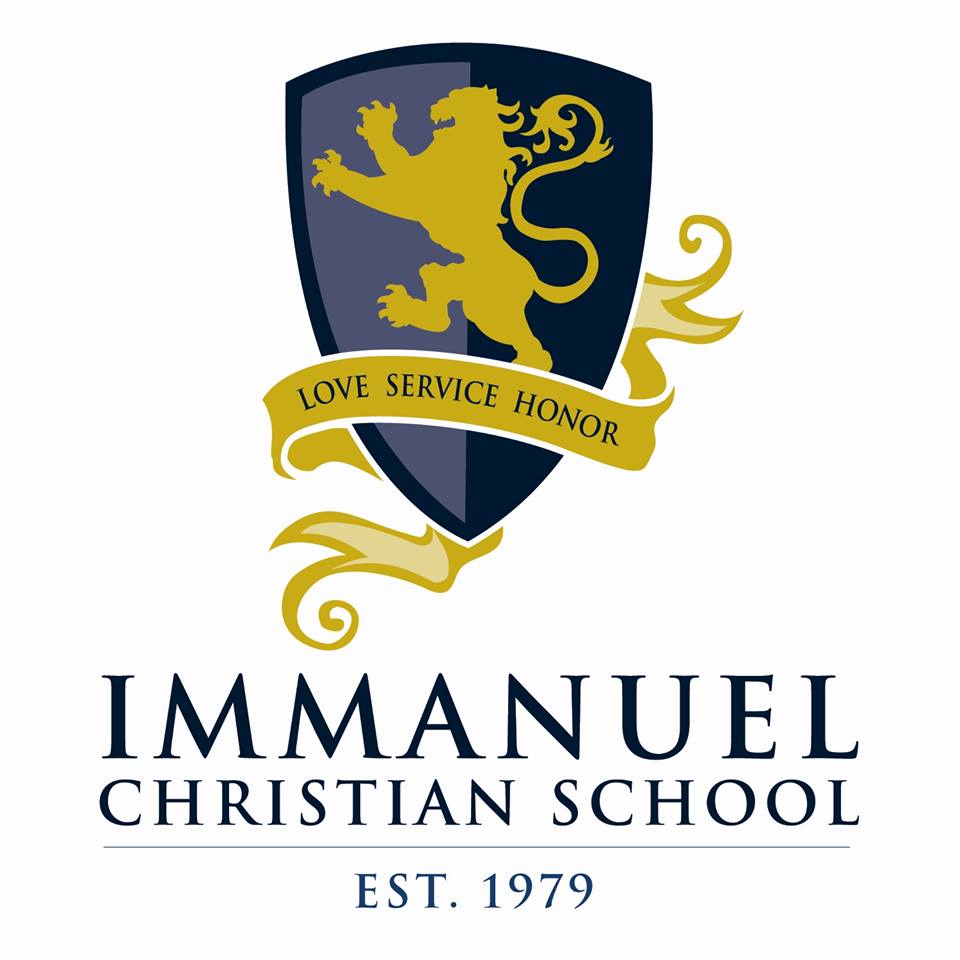
Neighborhood Nonprofits: Immanuel Christian School
 Our Communications and Resource Manager, Meghan, had the opportunity to sit down with Susan Selby, the Director of Development/Administrator for the Immanuel Christian School, and speak about the school’s 40-year history and future-focused vision.
Our Communications and Resource Manager, Meghan, had the opportunity to sit down with Susan Selby, the Director of Development/Administrator for the Immanuel Christian School, and speak about the school’s 40-year history and future-focused vision.The organization started out in the basement of the Grace Fellowship Church in 1979 with 11 students.
They have since grown to reside in two campuses in Hazleton, and serve 150 students in grades Pre-K to 12th grade. One location houses their Pre-K to 6th grade students on Locust Street, and their Jr. and Sr. high school students have moved to a new location on N. Laurel Street – in the heart of downtown Hazleton.
The school’s mission is to provide a financially accessible, grace-based, quality education that informs and shapes students to be lifelong learners and selfless community servants. They have a particular focus on serving under-resourced students within the greater Hazleton area.
“Moving the high school students downtown is consistent with our efforts to be a blessing to the city, and we feel that we can do that by investing in the kids in the city and providing them with Christian education. To really help the students engage with the city, we need to be downtown. So, this is a stepping stone towards achieving our long-term vision,” says Selby.
To support their mission, the school offers a need-based indexed tuition model. Some families pay as little as $250/month for a student, determined by household income, which is made possible by individual, business, and foundation contributions.
3 out of 4 of their students live in an economically disadvantaged household and 98% of their students receive tuition assistance of some sort. Additionally, the school offers learning support services to help acclimate under-resourced students into higher academic standards. To further support their growing diversity, they have also started to offer some ESL services to students for whom English is a second language.
 The Immanuel Christian School features small, student focused classes with an average size of 15 students, which Selby sees as a unique educational benefit. “The biggest thing that sets us apart is the relational connection with the students. Because of intentionally keeping our class size small, it allows the teachers to give the students individualized attention in academics, but the biggest thing is the character building underneath. The personal relationships that are built between the student and the teacher and even the administration are huge, especially when you have a child with difficult life circumstances,” says Selby.
The Immanuel Christian School features small, student focused classes with an average size of 15 students, which Selby sees as a unique educational benefit. “The biggest thing that sets us apart is the relational connection with the students. Because of intentionally keeping our class size small, it allows the teachers to give the students individualized attention in academics, but the biggest thing is the character building underneath. The personal relationships that are built between the student and the teacher and even the administration are huge, especially when you have a child with difficult life circumstances,” says Selby.Selby describes the type of education that students receive at the school as an other-focused, grace-based educational system that has a missional model. “On a spiritual level, we are adding a 3rd dimension to education. When a student accepts that God loves him/her, that is hugely empowering to making good choices and living a life of integrity that is other-focused with a priority of serving others. In the area of discipline, we do our best to focus on the heart, rather than just behavior. That is easier to do when you have smaller classes and connected relationships with your students, says Selby.”
This grace-based model can be seen both in and outside of the classroom. The halls are quiet. Discipline is focused on the heart rather than just behavior. This means more conversations and dialogue and even prayer. Another part of character shaping is teaching students the value of hard work. If a student does poorly on a test, they work with their teacher and learning support to make all of the necessary corrections on the exam to ensure that they understand the material, rather than just moving on. Students are also expected to complete all of their homework, regardless of how late an assignment is. This teaches them the value of following through with tasks. In the lunch room, students wipe down the tables, clean up their garbage from the floor, and sweep up their area of the floor. Selby says that this teaches the students to be responsible and that work is a good thing – it’s a privilege.
Selby also explained that the school wants “the city to be our campus,” where the students truly interact with and take ownership within the city of Hazelton. Students currently take gym classes at the Hazelton YWCA, visit the Hazelton Art League for art enrichment programs, and even visit local restaurants for chaperoned lunch field trips. Seniors also shadow local business owners as a career exploration tool, and have had internship opportunities at local businesses and in local trades.
In the future, the school plans to focus more on service-learning opportunities for the students, where community projects that are student-led can be incorporated into academic curriculum and simultaneously benefit the local community. They would like to further expand student opportunities in the trades, because they recognize that some students may be interested in following that life path instead of attending a college or university and our area has a demand for skilled workers in those industries. Of their students that do want pursue a degree at the higher education level, they are well prepared by the school’s curriculum and they score well on the SATs.
In their immediate future, the school’s biggest goal and point of focus is moving all of their students to their campus on N. Laurel Street, both to further their mission and connection to the city, and to ensure the school’s sustainability. They share the Laurel St. building with a local church that has a similar mission, and the school was given the opportunity to remodel the entire 6,000 square foot lower level in exchange for free rent for a minimum of 7 years. Their goal is for Pre-K – 6th grade students classes to be held on the lower level, while the Jr. and Sr. high school students would be housed on the upper floors.
Selby and the school are launching a capital campaign to raise funds for the remodel, with a goal of $500,000. After two successful years in their race for education where the students raised $30k and then $40k last year, the students are aiming to raise $50,000 in the Race for Education this year, and Selby is challenging the community to match their goal with another zero.
Images

Powered By GrowthZone
